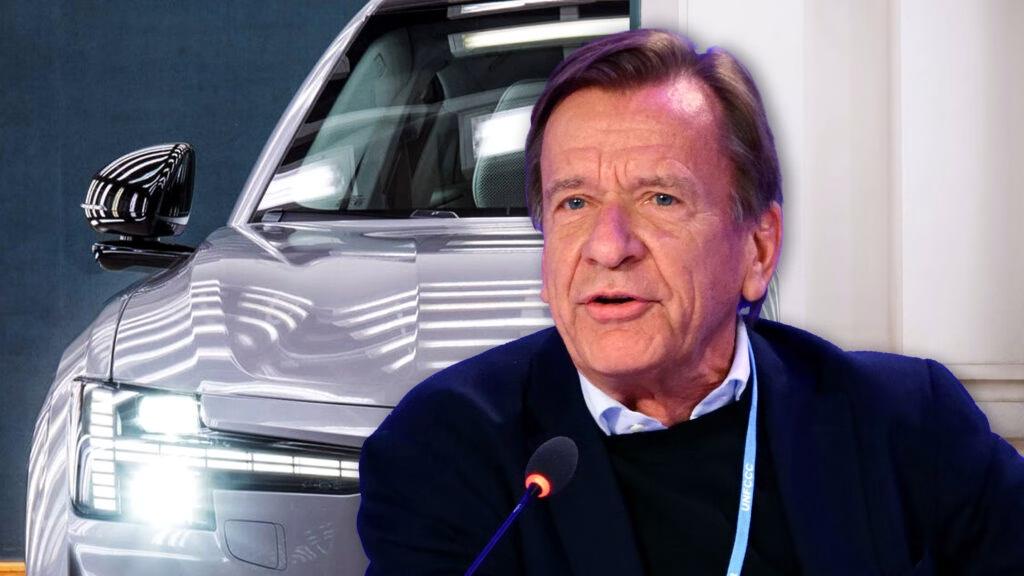Why Is Volvo’s CEO Predicting the Demise of Some Western Car Brands?
Hakan Samuelsson, the seasoned executive recently brought back to the helm of Volvo by Geely, isn’t mincing words about the future of the auto industry. According to Samuelsson, the writing is on the wall: electrification is not just a trend—it’s the inevitable direction for cars worldwide. He’s convinced that within the next decade, electric vehicles (EVs) will become more affordable, and the companies that fail to adapt will simply fade away.
This isn’t just boardroom bluster. Samuelsson’s perspective comes from decades of steering Volvo through shifting automotive tides. Now, with Chinese brands surging and the global market in flux, he’s warning that some Western automakers are at real risk of being left behind. The reason? A combination of slow adaptation, rising competition from China, and the relentless march of technology.
How Soon Will Electric Cars Overtake Gasoline Models?
Samuelsson’s forecast is bold: in about ten years, he expects nearly all new cars to be electric—and crucially, cheaper than today’s combustion-powered vehicles. That’s a big shift from the current landscape, where EVs often carry a premium price tag. But the numbers are moving fast. According to BloombergNEF’s 2024 Electric Vehicle Outlook, battery prices have dropped by over 80% since 2010, and further declines are expected as manufacturing scales up and technology improves.
The catch? The transition won’t happen at the same pace everywhere. Some regions, especially those with patchy charging infrastructure or less government support, may lag behind. But the overall direction is clear. Samuelsson points to the rise of new dominant players—much like Ford, GM, Toyota, and Volkswagen once were—emerging from this electric revolution. And he’s betting that several of those new giants will be Chinese.
What Makes Chinese Brands Such a Threat to Western Automakers?
Let’s talk numbers. In 2023, Chinese brands accounted for more than half of all new car sales in China, the world’s largest auto market. But they’re not stopping there. Companies like BYD, Geely, and SAIC are rapidly expanding into Europe and other global markets, often with EVs that undercut Western rivals on price and match or exceed them on tech.
Volvo’s own parent company, Geely, is a case in point. With ownership stakes in Lotus, Zeekr, Polestar, and Lynk & Co, Geely is building a global EV empire. Samuelsson sees Volvo’s Chinese ties as a strategic advantage, giving the Swedish brand access to cutting-edge battery tech, supply chains, and scale that many European rivals simply can’t match.
The result? European and American brands are now fighting for relevance in a shrinking share of the global market. The pressure is on, and not everyone will make it. Samuelsson predicts a wave of restructuring, with only the most adaptable companies surviving the shakeout.
Are Plug-In Hybrids Still Relevant, or Is It All About Full EVs?
While Volvo has dialed back its original pledge to go fully electric by 2030, the company isn’t abandoning the EV ship. Instead, it’s hedging its bets by investing in both battery-electric vehicles and plug-in hybrids. Samuelsson describes plug-in hybrids as a crucial bridge—especially in regions where charging infrastructure is still catching up.
This approach isn’t unique to Volvo. Industry data from the International Energy Agency shows that plug-in hybrid sales are still growing, particularly in markets like the US and parts of Europe where range anxiety and charging access remain concerns. Samuelsson expects this “bridge” period to last several more years, possibly well beyond 2030, as consumers gradually warm up to full EVs.
How Is Volvo Positioning Itself to Survive the Coming Upheaval?
Volvo’s strategy is to stay nimble. By offering a mix of plug-in hybrids and pure EVs, the company can meet customers where they are—whether that’s in a city with robust charging or a rural area where gas stations still rule. But the real ace up Volvo’s sleeve is its relationship with Geely.
Samuelsson is candid: the stronger the Chinese car industry becomes, the more valuable Volvo’s connection to Geely will be. This partnership gives Volvo access to technology, scale, and supply chains that are increasingly critical in a world where EVs are the future. It’s a pragmatic move, and one that other Western brands may struggle to replicate as Chinese companies consolidate their global influence.
What Does This Mean for Car Buyers and the Industry at Large?
For consumers, the coming years promise more choice, better technology, and—eventually—lower prices for electric vehicles. The competition from Chinese brands is already forcing Western automakers to up their game, both in terms of value and innovation. Expect to see more affordable EVs, longer ranges, and faster charging as the market heats up.
For the industry, though, the stakes are existential. Some of the most storied names in Western automotive history may not survive the transition unless they can adapt quickly and decisively. The next decade will be a test of agility, vision, and willingness to embrace change.
The big takeaway? The electric revolution isn’t about perfection—it’s about smarter adjustments. Start with one change this week, and you’ll likely spot the difference by month’s end.

